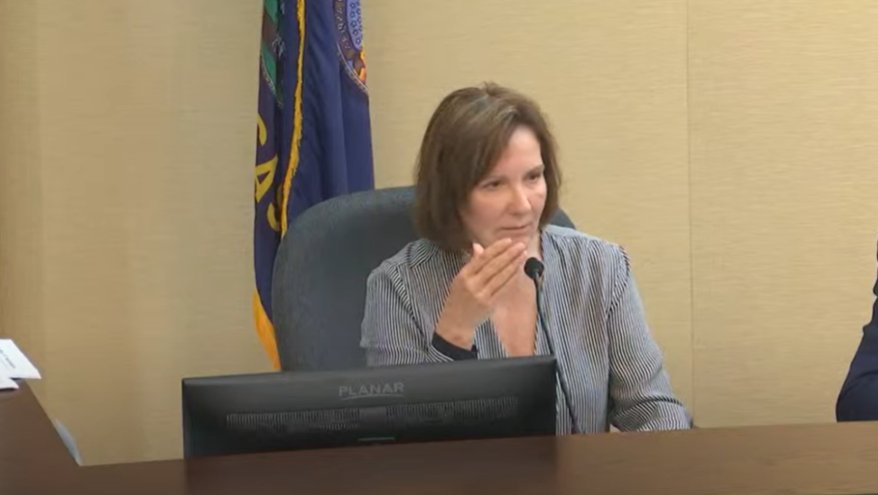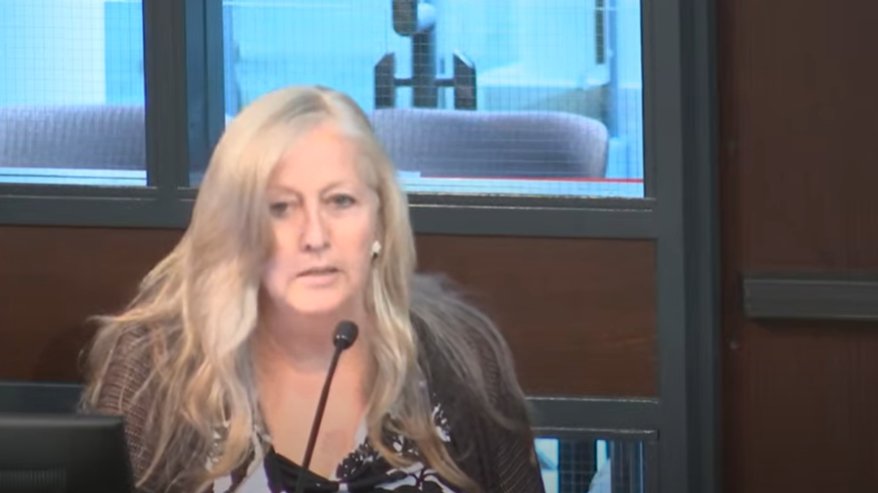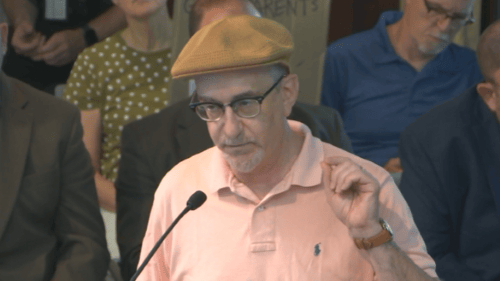Johnson County Commission Amends Regulations Guiding Solar Farm Developments Policy Caps Projects at 2,000 Acres, Forbids Solar Farms Within 1.5 Miles of Cities
Published June 7th, 2022 at 11:13 AM
Above image credit: The Johnson County Commission voted Monday to adopt solar farm regulations that include a maximum size of 2,000 acres and a 2-mile setback from city boundaries. (Sirisak Boakaew | Getty Images)The Johnson County Commission absorbed conflicting public comment Monday before voting to soften development regulations to allow individual solar projects as large as 2,000 acres, solar fields as close as 1.5 miles from city boundaries and operational permits of 25 years in length.
The commission voted 6-1 at the conclusion of a three-hour special meeting to approve revised planning and zoning regulations for unincorporated areas of the county for construction of solar collectors and battery storage facilities. More conservative limits recommended by the county’s planning commission were rejected, including a maximum farm size of 1,000 acres, a 2-mile buffer from cities and a 20-year permit.
Johnson County officials have studied options for locating utility-sized solar farms in the county since 2021.
“It’s been a long afternoon and it’s been a long process,” said Ed Eilert, chairman of the county commission. “I understand these kinds of decisions. There are different opinions in many, many cases.”
During public comment, landowners on the Johnson-Douglas county line offered support as well as opposition to restrictions adopted by commissioners.
The regulatory framework was in response to interest by NextEra Energy Resources, a Florida-based company, in building solar collection arrays in the two eastern Kansas counties. NextEra set its sights on a farm producing up to 320 megawatts and a storage facility with a capacity of 128 megawatts.
The West Gardner Solar project, over a 35-year period, could involve investment of $320 million, NextEra said. The area targeted for the solar farm would be west of Gardner, east of Baldwin City and north of Edgerton.

Mistaken ‘Right Turn’
Commissioner Charlotte O’Hara, the lone vote against the planning and zoning policy amendments, said the changes were an abrupt “right turn” for rural residents who never dreamed they would be at the epicenter of a solar farm complex.
“We have created a conflict between neighbors out in this area,” said O’Hara, who suggested a grid of solar collectors was more suited for land tied to the former Sunflower Army Ammunition Plant near DeSoto. She proposed several strategies for restraining construction of the solar farms on private property, but all were defeated.
Commissioner Janee Hanzlick, who backed the new policies in Johnson County, said solar standards set by the commission were more restrictive than state laws on siting commercial livestock facilities.
“The state of Kansas could approve a commercial hog farm that could be much closer to a city than what we’re proposing here,” Hanzlick said.
Jay Leipzig, the Johnson County director of planning and development, said failure to create a foundation for guiding solar construction in unincorporated areas of the county would lead to a land-use and legal nightmare. NextEra, for example, has proposed the start of solar farm construction in 2024.

Need Protection
Lisa Huppe, of Edgerton, said utility-scale solar development would be detrimental for Johnson County. She said the NextEra project would devalue property values and threaten the health and well-being of nearby residents. She said the commission should require solar panels to be no closer than 500 feet from nonparticipating property owners.
“We are not against solar energy,” Huppe said. “However, when it comes to utility-scale solar facilities in the agricultural communities of rural Johnson County, it’s a wrong choice. We pretty much know how you’re going to vote today, but make no mistake about it — we will not lose and we won’t stop showing up.”
Pam Ferguson of Eudora said selling or leasing agricultural land in Kansas for use by industrial-scale energy companies would result in landscapes plagued by black glass or towering windmills.
Edgerton resident Robert McCollum said the commission shouldn’t have ignored the county planning commission’s suggestions for a 1,000-acre maximum on solar farms, a 2 mile buffer from cities and issuance of 20-year permits on solar projects. He said input of the planning commission was foolishly disregarded.
“Why does the planning commission exist? All this would do is make them your puppet,” McCollum told county commissioners.
Climate, Economics
More than a dozen people testified before the county commission raised concerns about climate change and the necessity to move away from fossil fuels and to cleaner energy. Harvesting power of the sun is more environmentally appropriate than burning coal, oil or gas for electricity, they said.

“We must address the global climate crisis,” said retired Prairie Village physician Alan Bauman. “Large-scale renewable energy projects allow us to close polluting fossil fuel energy facilities, which contribute to global warming and impact the most vulnerable communities.”
Proponents of solar power were apprehensive the county would impose restrictions that inhibited financing of projects in Johnson County.
Nina Lanman, an Alexandria, Minnesota, resident and part of a family that signed a wind farm lease agreement for their land in Johnson and Douglas counties, said solar farms provided economic benefits to landowners and to the state, counties and communities in which they were built.
She said construction would generate millions of dollars in wages and tax revenue. Property taxes paid to government would increase after the 10-year abatement expired, she said.
“We’re very proud of our farmland,” said Lora Beth Clark, part of a family that also signed a solar lease. “We still value this land and want to keep it intact for our entire family as a family legacy. We value our property rights.”
Before the commission convened in Olathe to discuss solar farm regulation, President Joe Biden announced a two-year waiver of U.S. tariffs on solar panels manufactured in Cambodia, Malaysia, Thailand and Vietnam. Biden’s goal is to provide U.S. manufacturing a bridge to expand domestic production to fuel expansion of solar farm operations.
Tim Carpenter covers the Capitol for the Kansas Reflector, a nonprofit news operation covering Kansas state government and politics as part of States Newsroom. This story first appeared on the Reflector.



